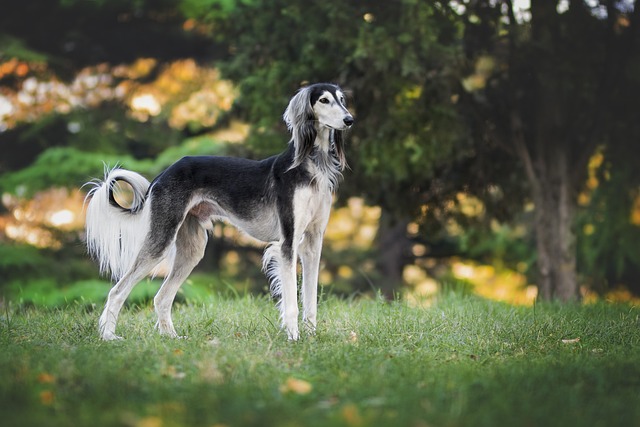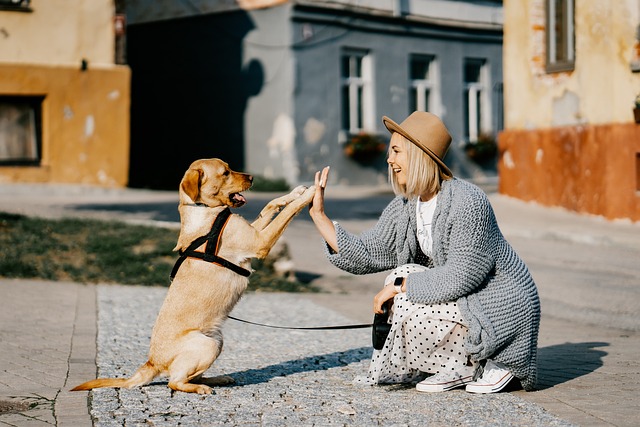Managing Stress and Anxiety: Techniques for a Calm Socialization Experience
As responsible dog owners, it is important for us to understand that some dogs may experience stress and anxiety during socialization experiences. This can hinder their ability to form positive connections with other dogs and humans. However, there are techniques that can be employed to help manage their stress and ensure a calm socialization experience.
First and foremost, it is crucial to create a safe and controlled environment for your dog. This means choosing a neutral location, away from distractions and potential triggers. By limiting external factors, you can help your dog focus on the socialization process without feeling overwhelmed or threatened. Additionally, it is essential to introduce your dog to new experiences gradually. Slowly exposing them to different situations and individuals will allow them to become familiar and comfortable over time. This approach helps reduce anxiety and allows your dog to build confidence in social settings.
The Role of Professional Trainers: Seeking Expert Guidance for Socializing Challenges
Professional trainers play a crucial role in helping dog owners overcome socialization challenges. When it comes to socializing your furry friend, seeking expert guidance can make a significant difference in achieving positive results. These trained professionals have a deep understanding of canine behavior and are equipped with effective techniques to tackle various socialization issues.
Professional trainers have the expertise to assess your dog’s socialization needs and tailor a specific training plan for them.

By seeking the assistance of a professional trainer, you can gain valuable insights into your dog’s behavior and body language during social interactions. Trainers can teach you how to interpret your dog’s signals and respond accordingly, ensuring a positive and stress-free experience for both you and your four-legged companion. Moreover, they can provide you with tips and techniques to reinforce desired behaviors and handle any challenging situations that may arise during socialization.
In conclusion, seeking the expertise of a professional trainer can greatly benefit dog owners facing socialization challenges. These trainers possess the knowledge and skills necessary to assess individual dogs’ needs and develop tailored training plans. With their guidance, you can effectively address any fears or anxieties your dog may have and ensure a smooth and comfortable socialization experience for your furry friend.
Socializing Adult Dogs: Overcoming Barriers and Establishing New Connections
Socializing adult dogs can be a challenge, particularly if they have had limited exposure to other dogs or if they have had negative experiences in the past. However, with patience and the right approach, it is possible to overcome these barriers and help your dog establish new connections.
One key aspect of successful socialization is gradual exposure. Start by introducing your dog to calm and friendly dogs in a controlled environment. This can be in a neutral location, such as a park or in the presence of a professional trainer. Allow them to interact at their own pace, observing their body language for signs of comfort or stress. If your dog shows signs of fear or anxiety, provide reassurance and create distance to avoid overwhelming them. Gradually increase the duration and complexity of interactions, always prioritizing your dog’s comfort and well-being. Additionally, positive reinforcement techniques, such as treats and praise, can be used to reinforce desired behavior and create positive associations with socializing.
Maintaining a Socialization Routine: Incorporating Regular Interactions into Your Dog’s Life
Maintaining a regular socialization routine is key to ensuring that your dog becomes well-adjusted and comfortable in a variety of situations. By incorporating regular interactions into your dog’s life, you can help them develop strong social skills and reduce the likelihood of anxiety or aggression towards unfamiliar people or dogs.
One effective way to incorporate regular interactions into your dog’s routine is to schedule regular playdates with other friendly and well-behaved dogs. This can be done at a local dog park or with friends and family who have dogs of their own.


• Schedule regular playdates with other friendly and well-behaved dogs
• Choose a local dog park or friends/family who have dogs
• Expose your dog to different breeds, sizes, and temperaments
• Help them learn how to appropriately interact with others
• Monitor interactions closely for positive experiences
Beyond the Dog Park: Exploring Other Socialization Opportunities for Your Canine Companion
Beyond the Dog Park: Exploring Other Socialization Opportunities for Your Canine Companion
While the dog park can be a great place for your furry friend to interact with other dogs, it is not the only option for socialization. There are various other opportunities that can provide valuable experiences for your canine companion. One such opportunity is organized doggy playgroups. These playgroups are typically run by professional trainers or doggy daycare centers, and they offer a structured and supervised environment for dogs to interact and play together.
Another avenue for socialization is attending dog-friendly events in your community. Many cities organize dog festivals, outdoor markets, or even dog-friendly movie nights. These events not only provide socialization opportunities for your dog but also allow you to connect with other dog owners in your area. Additionally, participating in dog sports or activities like obedience classes, agility training, or even Canine Good Citizen programs can help your dog learn how to interact with different people and dogs in a controlled setting. Investing time in these activities will not only improve your dog’s social skills but also strengthen the bond between you and your furry companion.
How can I manage stress and anxiety during socialization experiences for my dog?
To manage stress and anxiety during socialization experiences, you can try techniques such as gradual exposure, positive reinforcement, and using calming aids like pheromone sprays or calming music.
When should I seek the help of a professional trainer for socializing my dog?
It is advisable to seek the help of a professional trainer if you encounter challenges or difficulties while socializing your dog. They have the expertise to assess the situation and provide guidance specific to your dog’s needs.
Can adult dogs be effectively socialized?
Yes, adult dogs can be effectively socialized. While it may take more time and patience compared to socializing puppies, it is possible to overcome barriers and establish new connections for adult dogs with proper training and consistent socialization efforts.
How do I maintain a socialization routine for my dog?
To maintain a socialization routine, you can incorporate regular interactions with other dogs, people, and different environments into your dog’s daily life. This can include walks in different neighborhoods, visits to dog-friendly parks, or organized playdates with other dogs.
What are some other socialization opportunities beyond the dog park?
Beyond the dog park, you can explore other socialization opportunities for your dog such as joining obedience classes, participating in canine sports or activities, attending dog-friendly events or festivals, or even arranging playdates with friendly, well-socialized dogs in controlled environments.


